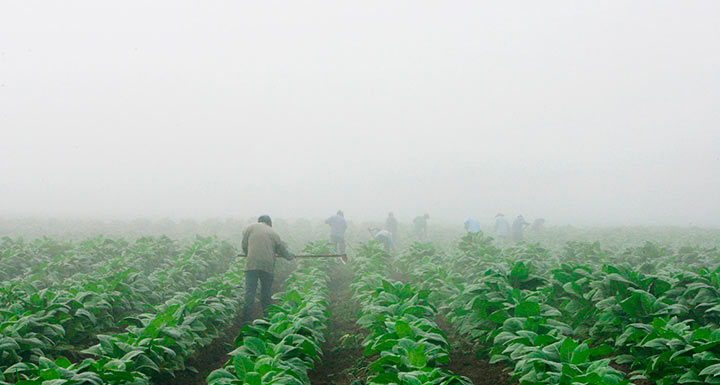
Child laborers. In America. In 2014.
The Obama administration has made curbing nicotine use by kids a public health priority, with efforts including mass media campaigns to reduce teen smoking and a proposed ban on selling e-cigarettes to minors. But when it comes to the serious health risks run by thousands of children who work each summer on tobacco farms in the United States, the administration has been conspicuously silent.
Lax federal labor laws allow kids as young as 12 to work in tobacco fields, despite mounting evidence that they can contract acute nicotine poisoning from handling tobacco leaves. Even some tobacco growers and companies take the position that U.S. laws and regulations aren’t strong enough. But the Obama administration has said little and done even less. That needs to change.
A Human Rights Watch report released in May documented the dangers to children working on American tobacco farms based on a year’s research and interviews with 141 child tobacco workers, ages 7 to 17, in the country’s four largest tobacco-producing states: North Carolina, Kentucky, Tennessee and Virginia. Tobacco grown in these fields is used to produce popular cigarette brands, including Marlboro, Pall Mall and Newport. Nearly three-quarters of children interviewed reported feeling sick—with nausea, vomiting, headaches, dizziness, difficulty breathing, or other serious symptoms while working in tobacco fields. Many of these symptoms are consistent with acute nicotine poisoning, also known as Green Tobacco Sickness. A 2007 Journal of Public Health review of public health studies found that non-smoking tobacco workers have as much nicotine in their bodies as active smokers.
Most of the children we spoke to labored for 50 to 60 hours a week in sweltering heat, often without shade or adequate drinking water. They plant seedlings, weed tobacco fields and work among tall tobacco plants, breaking flowers off the top of the plants and removing leaves called “suckers” that reduce the yield and quality of the tobacco. In Kentucky, Tennessee and Virginia, children often hand-harvest tobacco plants by cutting them with small axes and spearing the stalks onto long sticks with pointed ends. Some climb high into the rafters of curing barns to hang heavy sticks of tobacco to dry. Many children described how pesticides—known neurotoxins that can cause long-term and chronic health problems—drifted over them as tractors sprayed in the fields where they worked, causing their eyes and skin to itch and burn.
(From the: Politico Magazine)

